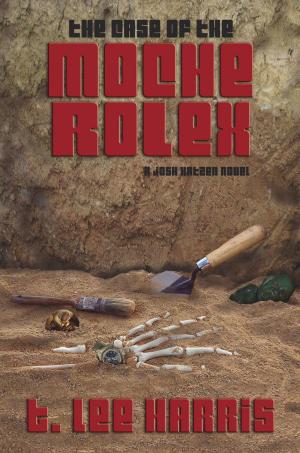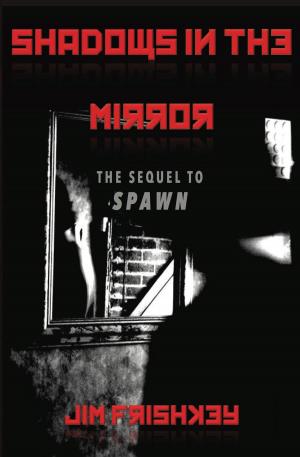Lidiya, The Photo File
Fiction & Literature, Drama, Eastern, Nonfiction, Entertainment, Mystery & Suspense, Espionage| Author: | Robert Hendry | ISBN: | 9781458024701 |
| Publisher: | Robert Hendry | Publication: | March 27, 2011 |
| Imprint: | Smashwords Edition | Language: | English |
| Author: | Robert Hendry |
| ISBN: | 9781458024701 |
| Publisher: | Robert Hendry |
| Publication: | March 27, 2011 |
| Imprint: | Smashwords Edition |
| Language: | English |
As the Lidiya Petrova series has evolved, I have frequently gone back to the photographs I have taken of Soviet military hardware and locations such as the Project 825 underground submarine pens. It gave me a feel for the locations and events I was describing just as seeing naval infantry or Spetsnaz frogmen helped in getting the atmosphere right.
I had described the Soviet rebreather sets used by the frogmen in “To Kill Our Worthy Comrade”, and compared to Western equipment with exposed cylinders and pipe work, the metal casing gives far less chance for a rival frogman in underwater hand to hand combat, in which the Spetsnaz teams train.
I knew what an IDA71 rebreather backpack looked like, but how many readers have seen a Spetsnaz naval frogman?
I had seen the last of the Soviet all gun cruisers, and looking at the Mikhail Kutuzov, I can understand why the Soviet Navy top brass could not bear to part with them, much as the US Navy chiefs held on to their last four battleships for decades. They were beautiful ships, but it was only when I was sailing within yards of the Mikhail Kutuzov that I fully appreciated what a hold these old fashioned cruisers had on sentiment.
In writing the Lidiya Petrova novels, I have thoroughly enjoyed going back to the photos time and time. In “To Kill Our Worthy Comrade” we met Larisa Burtseva, newly married to her militsia officer husband. Larisa is a lively girl and happily splashes around at the base of the Sunken Ships Memorial in Sevastopol harbour and then climbs on to the memorial itself.
Larisa is doing as countless Sevastopol girls have done over the years, and as I have seen them do. These were all memories that I have drawn on in painting a portrait of life in a major fleet base in the Soviet Union where the Soviet characters are real people and not just cardboard cut-outs.
One day it occurred to me that maybe, you, the reader of the Lidiya Petrova novels would like to SEE some of the places and equipment that are described in the novels. If you have not read any of the Lidiya stories, but enjoy this peep at the world Lidiya and her friends and enemies live in, then maybe it will encourage you to dip into the books. I hope you have as much fun as I have had.
As the Lidiya Petrova series has evolved, I have frequently gone back to the photographs I have taken of Soviet military hardware and locations such as the Project 825 underground submarine pens. It gave me a feel for the locations and events I was describing just as seeing naval infantry or Spetsnaz frogmen helped in getting the atmosphere right.
I had described the Soviet rebreather sets used by the frogmen in “To Kill Our Worthy Comrade”, and compared to Western equipment with exposed cylinders and pipe work, the metal casing gives far less chance for a rival frogman in underwater hand to hand combat, in which the Spetsnaz teams train.
I knew what an IDA71 rebreather backpack looked like, but how many readers have seen a Spetsnaz naval frogman?
I had seen the last of the Soviet all gun cruisers, and looking at the Mikhail Kutuzov, I can understand why the Soviet Navy top brass could not bear to part with them, much as the US Navy chiefs held on to their last four battleships for decades. They were beautiful ships, but it was only when I was sailing within yards of the Mikhail Kutuzov that I fully appreciated what a hold these old fashioned cruisers had on sentiment.
In writing the Lidiya Petrova novels, I have thoroughly enjoyed going back to the photos time and time. In “To Kill Our Worthy Comrade” we met Larisa Burtseva, newly married to her militsia officer husband. Larisa is a lively girl and happily splashes around at the base of the Sunken Ships Memorial in Sevastopol harbour and then climbs on to the memorial itself.
Larisa is doing as countless Sevastopol girls have done over the years, and as I have seen them do. These were all memories that I have drawn on in painting a portrait of life in a major fleet base in the Soviet Union where the Soviet characters are real people and not just cardboard cut-outs.
One day it occurred to me that maybe, you, the reader of the Lidiya Petrova novels would like to SEE some of the places and equipment that are described in the novels. If you have not read any of the Lidiya stories, but enjoy this peep at the world Lidiya and her friends and enemies live in, then maybe it will encourage you to dip into the books. I hope you have as much fun as I have had.















